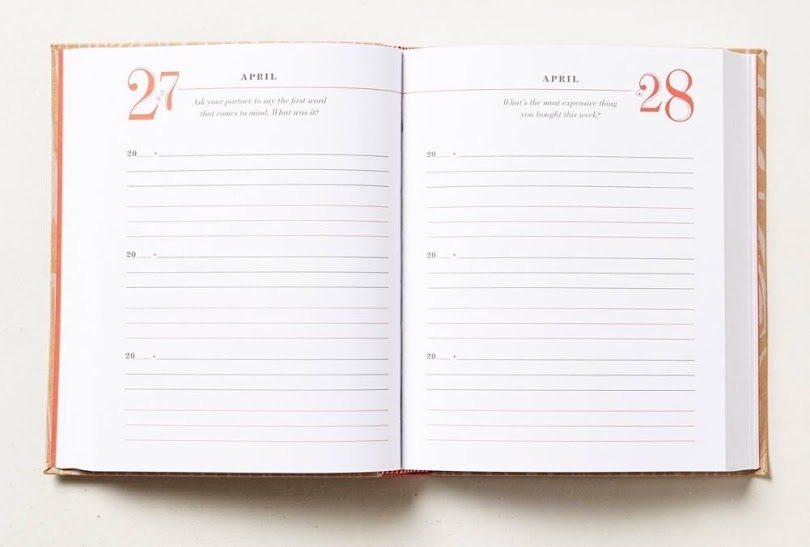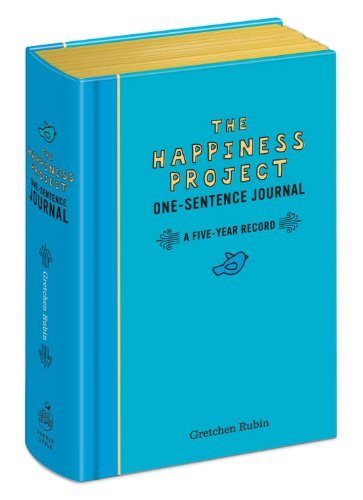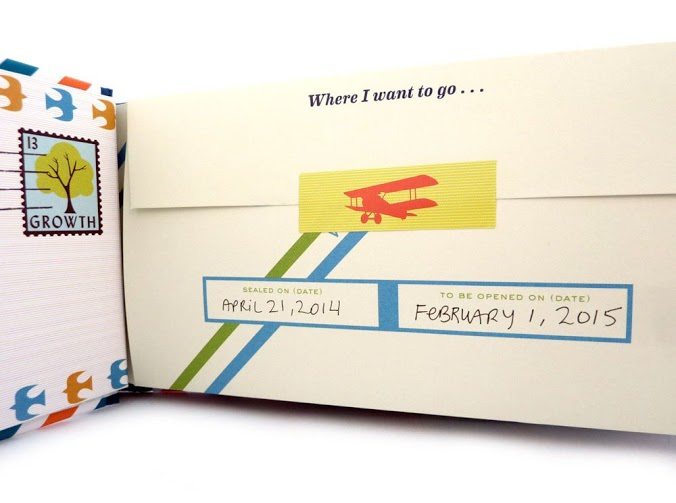Can’t Get a Journaling Habit to Stick? Try One of These NonTraditional Journals

If your last journal closed with a tiny lock and key and was hidden under a Star Wars-themed pillowcase, this post is for you.
There are loads of reasons why you, a grownup office ninja, should be journaling. This Fast Company article suggests that it may help you be more productive at work. Some experts even think it’s the key to stress management.
Beside these worthwhile reasons, journaling can be therapeutic, cathartic and even kind of fun. A blank page (or screen) presents the opportunity to get out everything you’ve been thinking but censoring all day long. Unless you’re still being tortured by a snooping big brother, no one will ever read what you write in your journal. Permission to be completely unreasonable: granted!
Go ahead and rant about everything that’s been bugging you. Journaling is a safe, risk-free way to get stuff off your chest. But leave some space for recording successes, tracking goals, and jotting down crazy ideas and “lightbulb moment” thoughts. Allow time for stream-of-consciousness writing, as this is a great way to spark creativity.
Regarding format, the best journal is the one you’ll actually keep. Moleskine notebooks are great for people who still appreciate the old-school pen and paper experience. If you want to keep things digital, you could use an online blogging platform like WordPress and simply switch the setting to private.
But, if you’re having trouble gaining traction with a journaling practice or simply don’t know where to begin, you may benefit from more structure, prompts or guidance. These few helpful tools could get you off to the right start with your journaling practice.
Q&A a Day Journal
The Q&A a Day Journal does a lot of the groundwork for the journaler. All you have to do is turn to the page with the day’s date (there’s a page for every day of the year) and answer the question, which may be something like “If you could travel anywhere tomorrow, where would you go?” or “What can you smell right now?” There are five separate spaces for each question, as the owner of the book is encouraged to keep the journal for five years, restarting it every time they complete a full year’s cycle.
The Happiness Project One-Sentence Journal
The Happiness Project One-Sentence Journal uses a similar 5-year model, but tops each page with inspirational quotes instead of thought-provoking questions. With this journal, you’ll read a quote like “When the student is ready, the teacher appears,” and write a one-sentence response. (Perfect for the time-crunched ninja!)
Letters to My Future Self
Letters to My Future Self is a bit of a twist on the traditional journaling concept. This kit comes with 12 fold-and-mail letters that are intended to be sent to – you guessed it – yourself. Each letter includes a prompt like “I promise to myself…” or “A pep talk to the future me…” Once sealed, the sender (and recipient) can mark the outside of the letter with a “To be opened by” date.
If you’re still not sure journaling is right for you, why not give it a finite amount of time – say, 30 days – and see how you like it? You may find that it’s a life-changing practice. Or maybe it’s a simple way to unwind at the end of the day. Either way you’ll have some interesting reading material for your future self.
Do you keep a journal? If so, what are some of the benefits of a regular journaling practice?



Sorry, but this just doesn’t stick. Never liked to write and I have tried everything out there. Journaling to me is just another job.
I would add one caveat. Do not keep your journal on your work computer. I know more than one person who got fired when the file was discovered and very personal and incriminating information was read.
Remember, whatever you keep on a work computer or network is owned by your company. Be careful what you keep there.
Excellent point, Jodith! A good reminder for all ninjas!